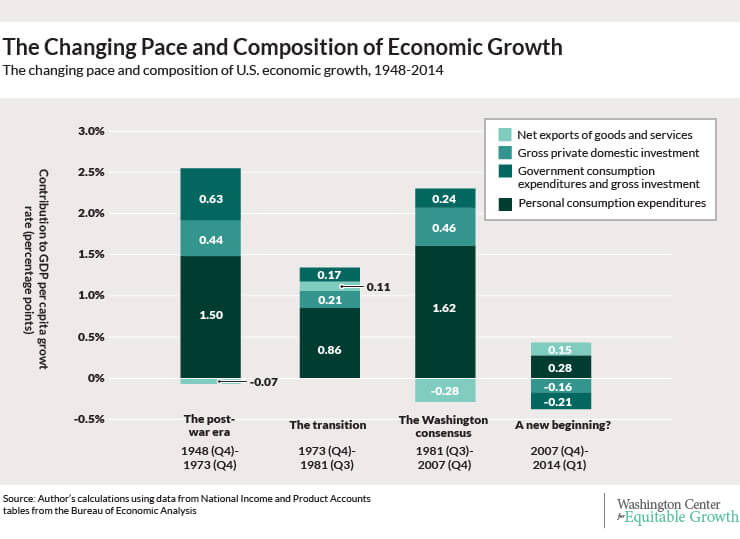The U.S. Bureau of Labor Statistics later this morning will release new data on union membership and coverage for 2014 in the United States. Over the past several decades, these releases have shown a declining unionization rate as membership decreased as a share of the workforce. In 1983, the unionization rate was 20.1 percent but by 2013 it stood at 11.3 percent. What’s the implication of this trend and did it continue in 2014?
Before attempting to answer those questions let’s first look at the reasons for the decline of unionization. Globalization, changes in labor laws, and the shift of employment from highly unionized industries (manufacturing) to less-unionized industries (personal services) are the most likely factors. Regardless of the relative importance of each cause, the trend in unionization across the developed world has been about the same, down, which is indicative of this confluence of causes.
What’s more, there is no coincidence that the period of deunionization coincides with an era of rising income inequality. A wide range of research finds that declining union membership is associated with increases in income inequality. According to one study by University of California-Berkeley economist David Card, the decline in male unionization between 1973 and 1993 was responsible for between 12 to 20 percent of the increase in wage inequality. Looking at data from 1973 to 2007, sociologists Bruce Western at Harvard University and Jake Rosenfeld at the University of Washington find that deunionization explains between 20 to 33 percent of the increase in inequality.
So, what should we expect when BLS releases the numbers this morning?
Year-to-year movements are hard to guess, but it’s a good bet that the unionization rate won’t increase by any significant amount. There’s been a well-publicized return of manufacturing jobs over the past several years, but for the most part they’ve been returning to non-unionized firms. The National Labor Relations Board, the country’s semi-judicial agency overseeing labor law, has made several changes in recent years to help boost unionization. But these changes are at the edges, and while helpful, seem unlikely to reverse or even halt the trend.
So when looking at unionization rates in the private sector, trends in specific industries may be more interesting. Manufacturing jobs are returning, but whether this will boost the unionization rate in these industries has yet to be seen. In particular, look at the unionization rate for durable goods manufacturing, which includes the auto industry—the heart of many of the high-paid union jobs of the past.
In contrast, the unionization rate for public-sector employees has been relatively constant over the past several decades, hovering in the mid-to-upper 30 percent range. But over the past 5 years, politicians in several states successfully made a concerted effort to reduce union bargaining power and membership among state-and-local employees. The public unionization rate dropped 0.6 percentage points from 2012 to 2013. This downward trend may well have continued in 2014.
So given current trends, the future for the unionization rate looks negative. The rate in the United States is already quite low, below seven percent in the private sector. Can the trend be reversed? If not can the positive aspects of unions be brought back in a different form? And what would that mean for the future of income inequality? These are all difficult questions, with no easy answers.

